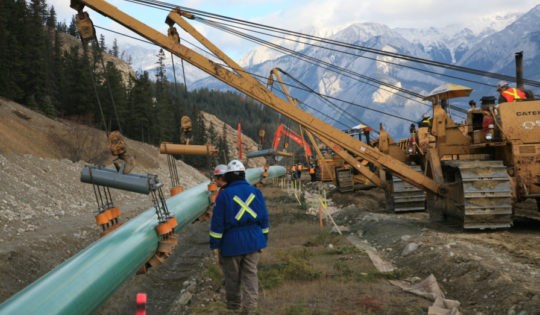The June 18 federal government approval to expand the Trans Mountain Pipeline is being heralded as good news in Sault Ste. Marie.
The city is home to Tenaris Algoma Tubes, which manufactures pipe for the energy industry and could see a direct impact from the project.
In a news release, Sault MP Terry Sheehan said more demand for Tenaris products would result in more jobs for the community.
He also expressed support for the promise made by Prime Minister Justin Trudeau to invest any pipeline-generated revenue – estimated at $500 million a year – into clean energy initiatives.
“As the alternative energy capital of the world, the Sault will benefit big time from green energy investments,” Sheehan said in the release. “On the economy, the environment, and the Sault, TMX is a win-win-win.”
His enthusiasm was echoed by David McHattie, Tenaris’ vice-president of institutional relations Canada.
“Tenaris commends the federal government's approval of the TMX pipeline,” McHattie said. “This is good for Canadian manufacturers like Tenaris that are committed to support the safe development of Canadian energy resources."
Cody Alexander, president of United Steelworkers 9548, which represents Tenaris workers, praised the decision to approve the project as “forward-thinking.”
“Our main hope is that with this pipeline approval, in conjunction with the lifting of the U.S. 232 (steel) tariffs, we will see an increase in our pipe orders, which will result in our 200 laid-off workers being recalled,” Alexander said in the release.
“These laid-off workers are suffering, and they needed this good news.”
Those employees were laid off last fall and this past spring. As reasoning for the decision, the company cited imports creating a surplus of product, combined with reduced drilling activity as a result of pipelines reaching capacity.
The Trans Mountain Pipeline was originally constructed in 1953. The expansion would involve “twinning” the existing pipeline between Alberta and B.C. to increase capacity to 890,000 barrels per day from the current 300,000 barrels per day.




